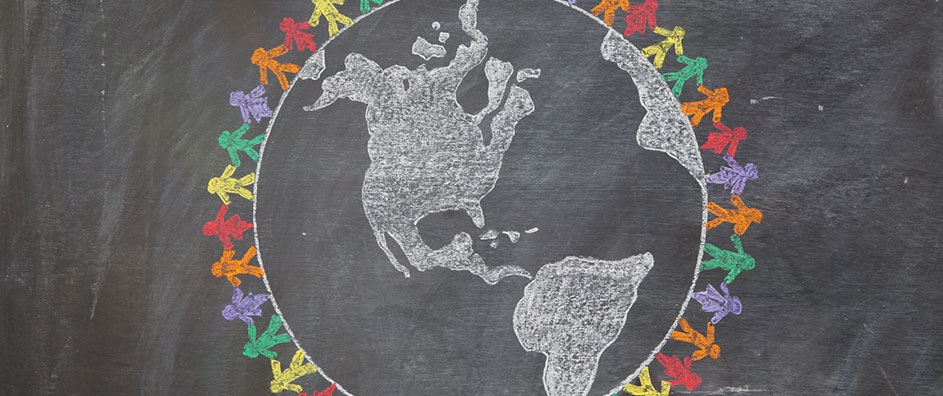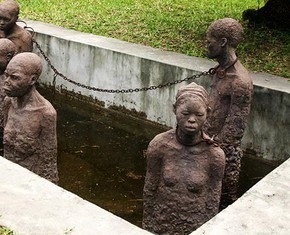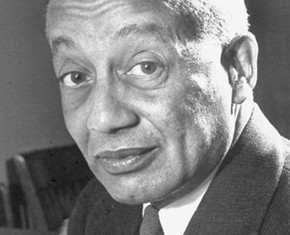The views expressed in our content reflect individual perspectives and do not represent the authoritative views of the Baha'i Faith.
I have, therefore, chosen this time and place to discuss a topic on which ignorance too often abounds and the truth too rarely perceived. And that is the most important topic on earth: peace. What kind of peace do I mean and what kind of a peace do we seek? Not a Pax Americana enforced on the world by American weapons of war. Not the peace of the grave or the security of the slave. I am talking about genuine peace, the kind of peace that makes life on earth worth living, and the kind that enables men and nations to grow, and to hope, and build a better life for their children — not merely peace for Americans but peace for all men and women, not merely peace in our time but peace in all time. – President John F. Kennedy, American University Commencement Address, June 10, 1963.
Let not a man glory in this, that he can kill his fellow creatures; nay, rather, let him glory in this, that he can love them. – Abdu’l-Baha, The Promulgation of Universal Peace, p. 75.
Now that the South American nation of Colombia has declared peace with the FARC rebels after a 52-year war, and no other wars currently rage in the Western hemisphere, have we reached Pax Americana?
You’ve probably heard that Latin term before—it means peace in the Americas. Initially used by the French writer and intellectual Alexis de Tocqueville, Pax Americana originally described the idea of a young United States holding a special place among nations, because of its population of immigrants from many other places and its role as the world’s first modern democracy. De Tocqueville, writing in the early 19th Century, theorized that the United States had a unique role in global relationships among nations, because it had no imperialistic aims or ossified class structures.

Alexis De Tocqueville
De Tocqueville’s idea became known as “American exceptionalism,” and politicians have disagreed about it ever since.
During the 20th Century, though, the Pax Americana doctrine slowly became a more negative term that described a hegemony of military power, based primarily on the overwhelming martial dominance of the United States in its hemisphere. That doctrine, buttressed by a global network of hundreds of military installations around the world, ultimately had the effect of exporting conflict to other places—Korea, Vietnam, Latin America, the Arabian Gulf, Afghanistan and Iraq—while maintaining a war-free zone within its own borders. Pax Americana, then, no longer meant peace—it meant that the United States prospered economically while waging overt and covert wars in other places. It meant that the United States, especially after the collapse of the Soviet Union in 1991, became the world’s only “hyperpower”—a unipolar, dominant force militarily, economically and culturally. President Kennedy famously referred to it as “a Pax Americana enforced on the world by American weapons of war.”
But the fear of those terrible weapons—especially nuclear weapons—has now afforded the world an extended, seven decade-long shaky truce between superpowers. Called “the Long Peace,” it recognizes the fact that the world’s major nations have stopped fighting with each other, at least on the massive scale we saw during the two World Wars. In fact, the Center for Systemic Peace reports that wars between sovereign countries have virtually disappeared in the new millennium, even as terrorism, proxy conflicts, military coups and civil wars have proliferated. Multi-state wars on a grand global stage, like we saw twice in the last century, seem to have (hopefully) become extinct.
In his historic visit to North America more than a century ago, Abdu’l-Baha advised and encouraged Americans and American leaders to vigorously pursue a true Pax Americana:
…because I find the American nation so capable of achievement and this government the fairest of western governments, its institutions superior to others, my wish and hope is that the banner of international reconciliation may first be raised on this continent and the standard of the Most Great Peace be unfurled here. May the American people and their government unite in their efforts in order that this light may dawn from this point and spread to all regions, for this is one of the greatest bestowals of God. In order that America may avail herself of this opportunity, I beg that you strive and pray with heart and soul, devoting all your energies to this end: that the banner of international peace may be upraised here and that this democracy may be the cause of the cessation of warfare in all other countries. – Abdu’l-Baha, The Promulgation of Universal Peace, pp. 83-84.
May this American democracy be the first nation to establish the foundation of international agreement. May it be the first nation to proclaim the universality of mankind. May it be the first to upraise the standard of the Most Great Peace… – Ibid., p. 36.
Abdu’l-Baha’s injunctions echoed Abraham Lincoln’s stirring call to sustain and spread democracy and peace:
It is rather for us to be here dedicated to the great task remaining before us—that from these honored dead we take increased devotion to that cause for which they gave the last full measure of devotion—that we here highly resolve that these dead shall not have died in vain—that this nation, under God, shall have a new birth of freedom—and that government of the people, by the people, for the people, shall not perish from the earth. – The Gettysburg Address
Tragically, various American political administrations and institutions haven’t always taken Abdu’l-Baha’s or Lincoln’s prescient advice. The United States has, despite its philosophical underpinnings and its revolutionary democratic beginnings, often supported tyrants and oppressors and waged war on their behalf. On the other hand, the U.S. does have a long record of mediating international disputes and supporting peace initiatives in various conflict-ridden places.
On balance, then, Baha’is believe that the United States has a peaceful destiny—that its democratic structure and its special place in the pantheon of the world’s nations uniquely qualify it to become a peacemaker and not a warmonger.
Next: Jumbo Shrimp, Military Intelligence and Civil Wars
















Comments
Sign in or create an account
Continue with Googleor